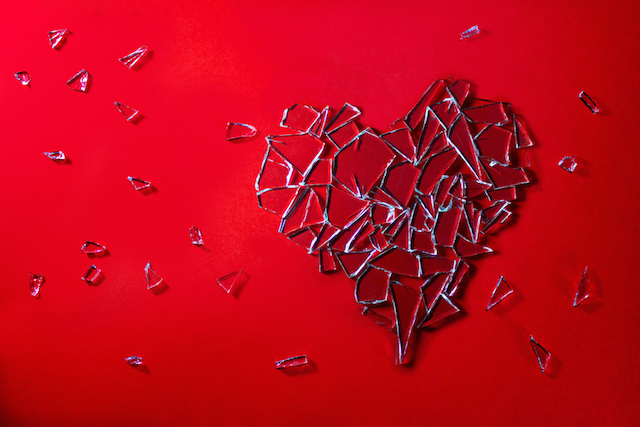How to Move On After a Regretful Breakup: A Guide to Healing and Growth
Your heartbreak isn't your ending. It's a beginning. Rise above the regret, embrace the journey, and discover the incredible growth that awaits on the other side.
- Ornella Jameson
- May 13, 2025
- 0 Comments
- 2664 Views
Loving someone is a great feeling. Butterflies, romantic dates, ups and downs, projects, and more. It is all beautiful until it is no more. And that’s when it hurts the most.
Breakups can be challenging. They can leave you feeling lost, heartbroken, and unsure how to move forward. But it's important to remember that there is life after a breakup, and with time, healing is possible if you take the steps necessary.
This article will explore the journey of picking up the pieces and finding the strength to move forward after a regretful breakup.
I. Self-inspection: knowing your feelings
Consider this: you ride on a bike, and you fall. You get hurt. Of course, you’ll not stand up and start riding your bike! What do you do first?
You check yourself and see if there are any bruises or sores. And then, you can decide to move on or not. Imagine you have a commotion; what will you do?
It is essential first to know what’s wrong, if even something is wrong, to reassess your position and feelings to see if they still match your mindset.
Because, yes, the mindset is necessary to move on. After a breakup, it's normal to experience a rollercoaster of emotions. You may feel sadness, anger, confusion, and even relief. Remember that it's okay to feel these emotions and that they are a natural part of the healing process. Allow yourself to grieve the loss of the relationship and permit yourself to feel.
A breakup can be an opportunity for self-reflection and personal growth. Take the time to reflect on the relationship and identify any patterns or behaviors that may have contributed to its downfall. Use this knowledge to grow and improve as an individual. Focus on self-care and engage in activities that bring you joy and fulfillment.
II. Reconnection: building new bonds
Whether or not you like it, you’ll not decline your friend's call to sob in your room. You’ll not cancel on plans because you need to cry it out. This healing process will be managed just like you organize your work life.
Remember, your friends are there for you to feel better, and no, you are not using them or abusing their time. They willingly do it and are way happier to make you feel better.
That’s why you must build new bonds or develop the pre-existing ones.
It's essential to lean on your support system during this challenging time. Surround yourself with friends and family who can provide comfort, advice, and a listening ear.
Seek professional help if needed, such as therapy or counseling. Building a solid support system can help you navigate the healing process and provide a sense of solace.
III. Forgive and forget? Maybe yes
Of course, he/she hurt you, and you’ll not love someone like that ever again ( you’ll fall in love next week, trust me), and of course, he/she doesn’t care and is having fun with friends and new partners. So should you also, instead of crying….
According to the previous tip, to reconnect and lean on your support system, you should also be out there having fun and enjoying your life.
But it cannot be done without a mindset cleanse. And how is this cleanse done?
Yes, by forgetting and forgiving.
Or if you don’t want to forgive, you can forget. You can pick one or the other. But you must choose one.
If you don’t want to forgive, remember that forgiving is not for the other part but for ourselves because we trusted another person. It means saying, “I’m sorry for putting myself in such a situation, and apologize to myself for getting hurt.”
Like on the bike, you fell; you cannot keep cursing the ground. It did what it did, and you feel what you feel now. Plus, it would be pretty stupid to stand on the ground and curse the place you got hurt for hours and days. That looks crazy, right?
Holding onto anger, resentment, or regret will only hinder your healing process. Practice forgiveness, and free yourself from the burden of negativity.
IV. Everyday is a new day
As trees grow and leaves fall, so shall you and your relationships.
Yeah, you’ll get married if that’s what you want, but that’s not our main question.
Look, here is the deal: you’ll heal.
Why? Because everything hurts and everything heals if we give it time and take the necessary steps.
Plus, you have something to do tomorrow. Maybe go to work, go to the pool, visit your grandma, play with kids, or give feedback on a document.
As time passes, you will begin to heal and find the strength to embrace the future. Use this opportunity to rediscover yourself, set new goals, and pursue your passions. Focus on personal growth, self-love, and building a fulfilling life for yourself. Remember that you deserve happiness and that a breakup does not define your worth.

 | Unlock Success with Our Guide
| Unlock Success with Our Guide



0 Comments